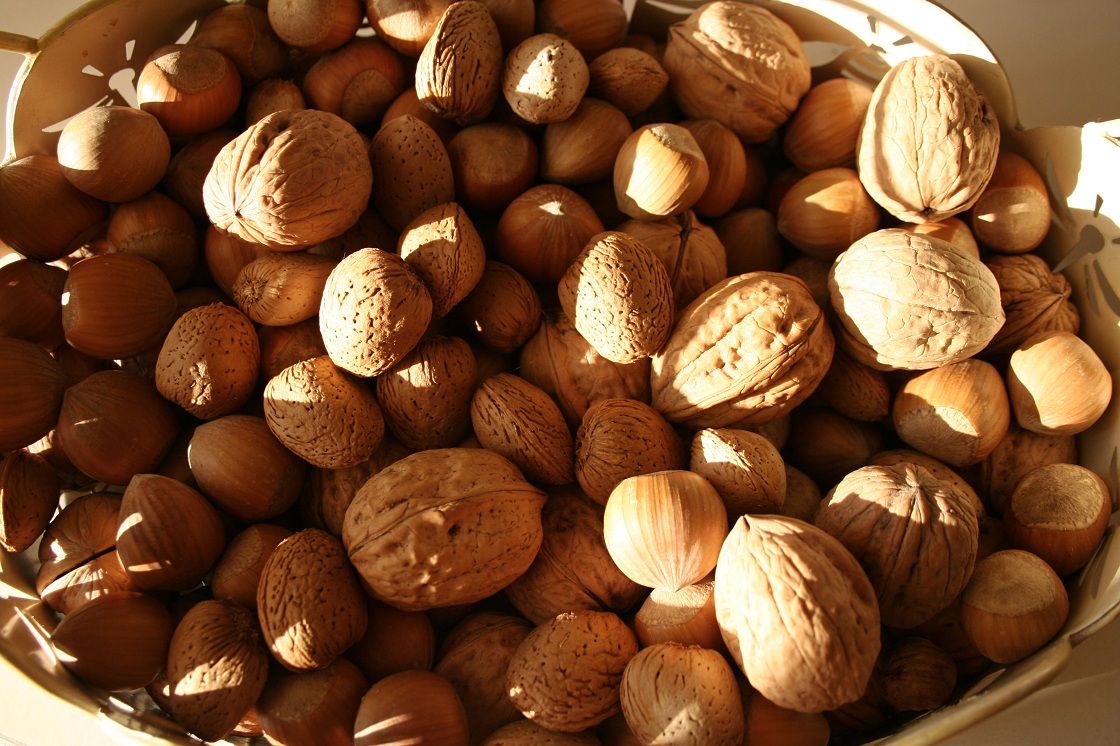TORONTO – Almonds, walnuts, pecans – these days, medical research has been touting nuts as nutritional powerhouses. But why are they so good for our health and how many should we be eating?

Nuts have been seen as heart protectors, but a recent study has even suggested that people who eat nuts daily have better health and longer lives than their counterparts who never eat nuts.
This was based on a 30-year Harvard study, supposedly the largest ever done on whether eating nuts affects our risk of death.
READ MORE: Go nuts: Study ties nuts to a lower risk of death, including from heart disease or cancer
“What this means is that people who ate nuts everyday appeared to be protected from cardiovascular disease. There are good things in nuts – healthy fats, omega 3s, fibre, good plant phenols and health-promoting compounds,” Dr. Rena Mendelson told Global News.
Mendelson is a nutrition professor at Ryerson University with more than 40 years of experience in the field.
Cleveland Clinic Canada registered dietician Jennifer Sygo also noted that nuts are packed with protein, rich in vitamins, minerals and flavonoids, which help protect blood vessels and lessen inflammation.
What kinds of nuts should we be eating daily?
This answer is easy – both Sygo and Mendelson said that all nuts are good for our health. The Harvard study even looked at a wide range of nuts – pistachios, almonds, walnuts, peanuts and other tree nuts.
Across the board, nuts helped stave off heart disease. In the study, the risk of cardiovascular disease dropped by 29 per cent and the risk of cancer dropped by 11 per cent among people who ate nuts seven or more times per week compared to people who never ate them.
READ MORE: Snapshot of health care in Canada: What you need to know
They were also slimmer than their counterparts.
Nuts help with brain health, skin, nails and hair. Sygo isolated a few options:
Almonds: they’re high in vitamin E, magnesium, they’re natural antioxidants and they help with heart health and skin healing. They also contain mono- and polyunsaturated fats, which help reduce “bad” cholesterol in our bodies.
Walnuts: these nuts are packed with antioxidants, phytosterols and other compounds that help keep breast cancer away, according to research. They’re also full of healthy omega-3s, which can help with brain health and blood pressure.
Macadamia nuts: these are usually seen roasted, smothered in salt or covered in chocolate. In this case, they’re a rare source of omega-7 fatty acids, which help with heart health and insulin sensitivity. But keep in mind, these nuts have about 202 calories per ounce, which is on the higher end.
How many nuts should I eat each day?
Sygo said that she recommends about an ounce or 28 grams of nuts per day. That’s about as much as what fits in the palm of your hand. And they can be a mixture of nuts or a handful of one kind, like almonds.
They’re high in calories – this may be why nuts are given a bad reputation. Mendelson suggestsed that nuts shouldn’t be simply added to our regular diets, they should be used to swap out unhealthy snacks.
An ounce of nuts could clock in at about 120 to 200 calories, depending on what kinds are in your hand.
READ MORE: Canadians living longer, but managing heart health needs improvement
Instead of reaching for a bag of chips or a 3 p.m. latte, Mendelson suggested a handful of nuts and some grapes could be a better option. They may be the same in caloric intake as other snacks, but they offer much more to the nutritional table.
It’s hard to say why nuts help our health. They’re nutrition may be at play, but Mendelson suggested it’s also the healthy habits of people who eat nuts.
“It’s very likely that people who chose nuts chose them over other treats. Choices are as important as anything to health outcomes and that shows up in study after study. What’s important to recognize is no single food is likely to account for health, but a pattern of eating,” she explained.
Maybe consumers eat them on top of salads, so they’re eating more greens. Or maybe they’re like Mendelson, who eats a few almonds instead of a candy bar when she wants a snack.
As for how they should be eaten? The study didn’t even look at how the nuts were prepared – if they were oiled, salted, raw or roasted.
Sygo suggests that if you’re watching sodium intake, you shouldn’t be eating salted nuts. Obviously, they shouldn’t be chocolate-covered or candied either. But overall, most preparations are fair game, including nut butters.
Read the full Harvard study in the New England Journal of Medicine here.
carmen.chai@globalnews.ca
Follow @Carmen_Chai




Comments